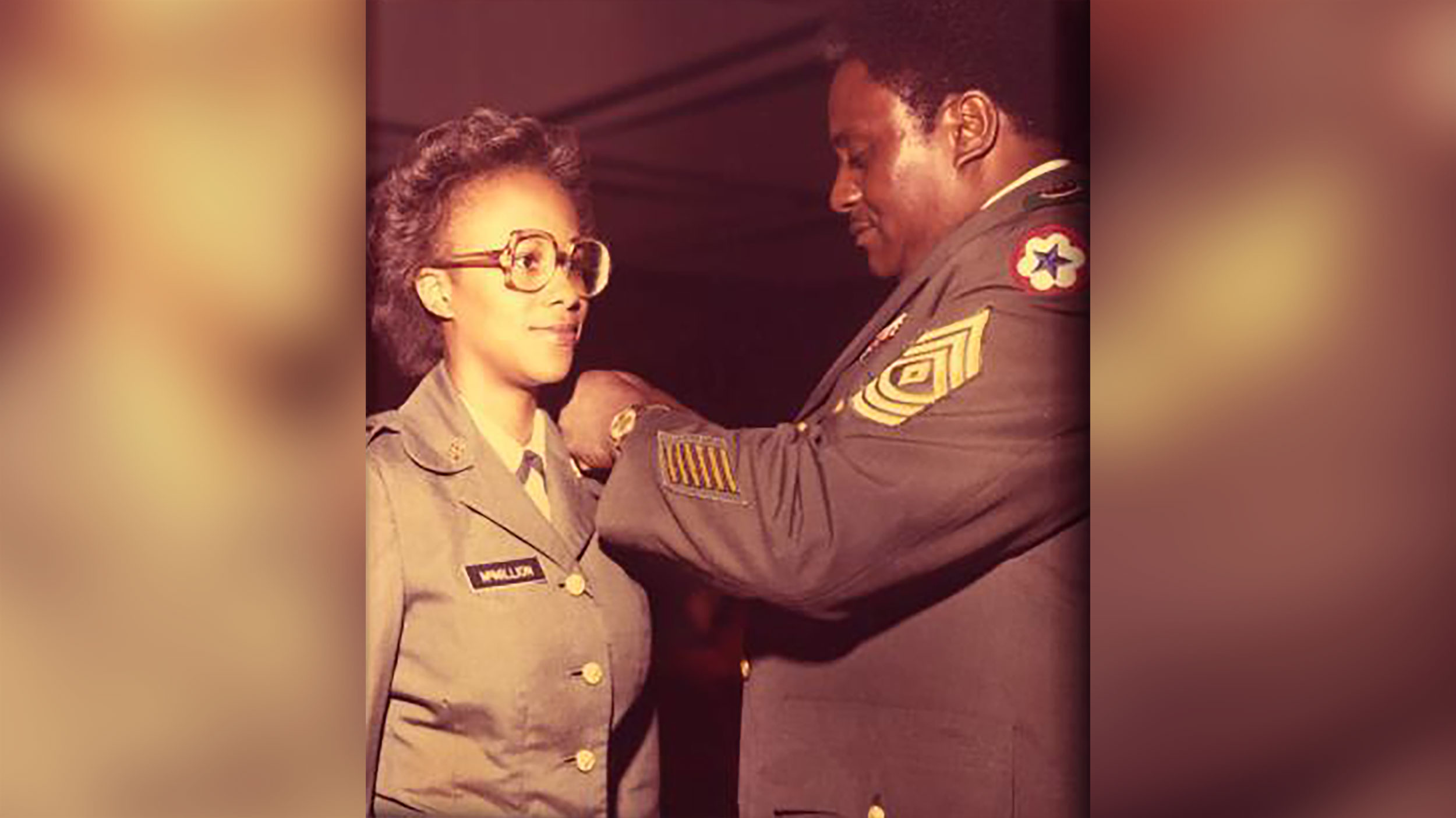Lieutenant General Gwen Bingham has spent much of her Army career being a frontrunner. She is only the second African American woman ever to become a three-star General in the Army and as she advanced throughout her career, she has been either the first woman, the first African American, or both to hold that position.
The general is quick to mention she would not be where she is without others “plowing tough ground” before her, and her warm, friendly approach has a way of putting everyone at ease.
If breaking barriers seems to be a natural talent for Gen. Bingham, it’s because she’s been doing it her whole life.
The girl from Troy
Bingham grew up in Texas and Alabama during the ’60s and ’70s, when the Civil Rights Movement and the assassinations of President Kennedy and Martin Luther King, Jr. were shaping the nation. It was during these formative years when Bingham says she first experienced racism.
As a teenager, a race riot broke out at her high school in Troy, Alabama.
“At the heart of the issue was the lack of representation of African American students in the school.”
To better represent the full student body, school administrators decided to start having two homecoming queens, a white one and a black one. Bingham was the school’s first Black homecoming queen. She also become the first person of color to become the Student Government Association President.
Looking back, Bingham says she is proud of her hometown Troy, “We kind of worked our way through a hard time.”
After graduating from high school, Bingham went to the University of Alabama, where she experienced a racist encounter which still resonates with her today. After receiving a bad grade on an exam, she went to the professor’s office to ask for study advice.
“I remember what came next, as if it were yesterday. He looked me dead in my eye, and he said these words, ‘Well, it’s a known fact that people like you don’t do well in education.’ I stood up because I felt the rage boil to the point where I’m just holding my anger. I stood up, I thanked him for his time and I exited his office. As I walked back to my dorm, the tears began to roll down my cheek.”
Bingham says that every time she recounts this story now, another person of color will approach her and say they’ve had a similar experience.
Rising through the ranks
Bingham grew up an Army brat. Her initial plan was to only serve the four years her ROTC scholarship required and then leave the military. However, she fell in love with the vocation and climbed the ranks. Even though she found success in the Army, she can still recall the moments of resistance, like an officer telling her he was upset when he learned a woman would be his commanding officer. But she has never let any of it stop her.
“I keep moving forward. I surround myself with positive-thinking people, and that’s who I am. And from that, I think I’ve been able to clear a path for women in general in the military, and certainly women of color.”
Now retired from the Army after 38 years, Bingham is continuing to clear that path through her work with the military nonprofit Blue Star Families’ Racial Equity and Inclusion Initiative. Bingham co-chairs the initiative, helping military families of color find the support and training they need to help diversify leadership in military communities.
According to surveys by Blue Star Families, military families of color are more likely to experience financial stress and spouse unemployment rate is higher in active-duty spouses of color than their white, non-Hispanic counterparts. Military families of color are also more likely to have concerns over being welcomed when relocating to new communities.
That’s one of the reasons why Charo Bates and her two young children are currently living about five hours away from where her Marine husband is stationed.
“We don’t want to go somewhere where we may have the risk of not being accepted or having our children exposed to racism before you would ever want a child to be exposed to that,” Bates told CNN. “I don’t want to have to worry about my husband, either. Even though he’s an active duty service member, I think we’ve seen, that doesn’t necessarily protect you in thinking about him leaving the house and making sure he gets to his destination and that he’s okay all the time. It’s emotionally exhausting.”
Guiding new voices
Bates is one of the participants in the Racial Equity and Inclusion Initiative’s DEPLOY Fellowship (Diversify and Expand the Pipeline Of Leaders for Your military community) program, which trains military spouses of color to promote and position themselves as the next generation of voices in organizations that support military communities.
The Marine spouse currently works on applied research and social impact for Blue Star Families with the ultimate goal of one day making life better for military families through policy.
“I would love to be on the Hill making change on the policy side. I want to change the way military families are treated, not only from the medical standpoint, but spouse employment-wise, from the educational component, mental health, there’s so many things.”
By helping to mentor, train and promote other women like Bates, Bingham is finding her way to “pay it forward or pay it back to the next generation.” And her own contributions have not been forgotten. In August, the Military Women’s Memorial at Arlington Cemetery announced Gen. Bingham’s story would be included in the next phase of their “Color of Freedom” display. The exhibit celebrates the diversity of servicewomen and the contributions they’ve made to the country.
Ever humble, Bingham expressed her gratitude for the inclusion and quickly moved on with her day. She might not admit it herself, but Gen. Bingham is kind of a big deal.



